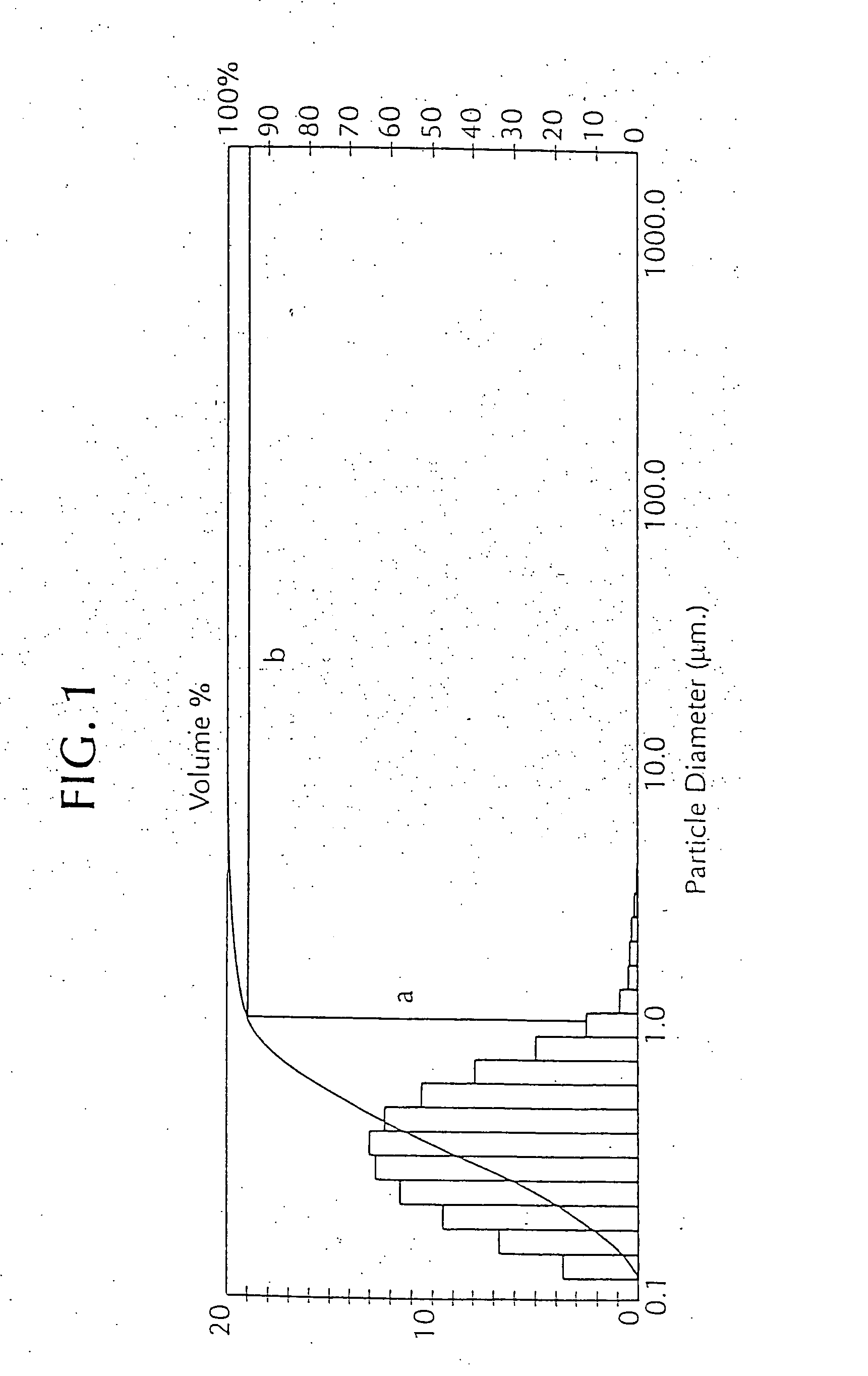Adjuvants for use in vaccines
a vaccine and adjuvant technology, applied in the field of adjuvants, can solve the problems of increasing the risk of damage to the antigen, increasing the risk of infection, and accumulating oil in the injected tissues, so as to improve the immune response of the animal and reduce the risk of infection. the effect of inflammation
- Summary
- Abstract
- Description
- Claims
- Application Information
AI Technical Summary
Benefits of technology
Problems solved by technology
Method used
Image
Examples
example 1
The Use of an Adjuvant that Contains Oil and Lecithin
[0050] The following example describes the use of an adjuvant that contains de-oiled lecithin dissolved in an oil (“oil-lecithin adjuvant”), usually mineral oil (light liquid paraffin) in veterinary vaccines. See U.S. Pat. No. 5,084,269, which describes an oil-lecithin adjuvant. A vaccine preparation using an oil-lecithin adjuvant is an oil-in-water emulsion.
[0051] All percentage concentrations herein are provided in volume per volume unless indicated otherwise. Percentage values, unless otherwise indicated, of an oil-lecithin adjuvant refer to the concentration of a mixture of lecithin (10% of the mixture) and a carrier oil (DRAKEOL™) (90% of the mixture) in an aqueous carrier (continuous phase). For example, a 20% oil-lecithin adjuvant contains 2% v / v lecithin (Central Soya, Fort Wayne, Ind.), 18% v / v DRAKEOL™ 5 (Penreco, Karns City, Pa.) and 80% v / v saline solution (with the saline content being reduced if other components, f...
example 2
The Use of an Adjuvant Containing a Surfactant at a Low Concentration
[0055] The following example describes the use of an emulsion containing 40% oil-lecithin and 2% of synthetic surfactants, i.e., Tween 80 and Span 80 (Van Water & Rogers, Omaha, Nebr.) in phosphate buffered saline. This adjuvant was prepared aseptically and separate from the antigen. The emulsion was added to the antigen preparation without further emulsification. The synthetic surfactants helped the oil-lecithin adjuvant to disperse as a coarse, relatively stable emulsion. The adjuvant emulsion was added to the aqueous antigenic preparation at the rate of one in eight, decreasing the oil-lecithin adjuvant content from 40% to 5%, and the surfactants from a combined 2% to 0.25%.
[0056] The adjuvant was used in several vaccines. It was found that because the emulsion is coarse and not very stable, the oil droplets tend to coalesce and to separate as a permanent, irritating depot of oil in the injected tissues. Anoth...
example 3
The Use of an Adjuvant Containing a Surfactant at a High Concentration
[0057] An oil-lecithin adjuvant (5% v / v) was emulsified in the antigenic preparation with the help of Tween 80 and Span 80 surfactants, as above, but at a total surfactant concentration of 8% in the vaccine composition. The emulsion was very fine and stable. It had almost the clarity of a solution and it did not cream on standing. Under the microscope, with maximum magnification (resolution 0.2 micron), most droplets were too small to be visible. Thus, it was a microemulsion. This adjuvant, when used in a vaccine formulation, was found to be virtually free of injection-site reactivity and, when Al gel was added, there was no detectable aggregation of oil and gel. As a result of its high surfactant content, this adjuvant is easy to emulsify, attractive in appearance, stable, unreactive with Al gel, and virtually free of irritating effects at the site of vaccination. Despite these advantages, however, this emulsion...
PUM
| Property | Measurement | Unit |
|---|---|---|
| diameter | aaaaa | aaaaa |
| diameter | aaaaa | aaaaa |
| diameter | aaaaa | aaaaa |
Abstract
Description
Claims
Application Information
 Login to View More
Login to View More - R&D
- Intellectual Property
- Life Sciences
- Materials
- Tech Scout
- Unparalleled Data Quality
- Higher Quality Content
- 60% Fewer Hallucinations
Browse by: Latest US Patents, China's latest patents, Technical Efficacy Thesaurus, Application Domain, Technology Topic, Popular Technical Reports.
© 2025 PatSnap. All rights reserved.Legal|Privacy policy|Modern Slavery Act Transparency Statement|Sitemap|About US| Contact US: help@patsnap.com

